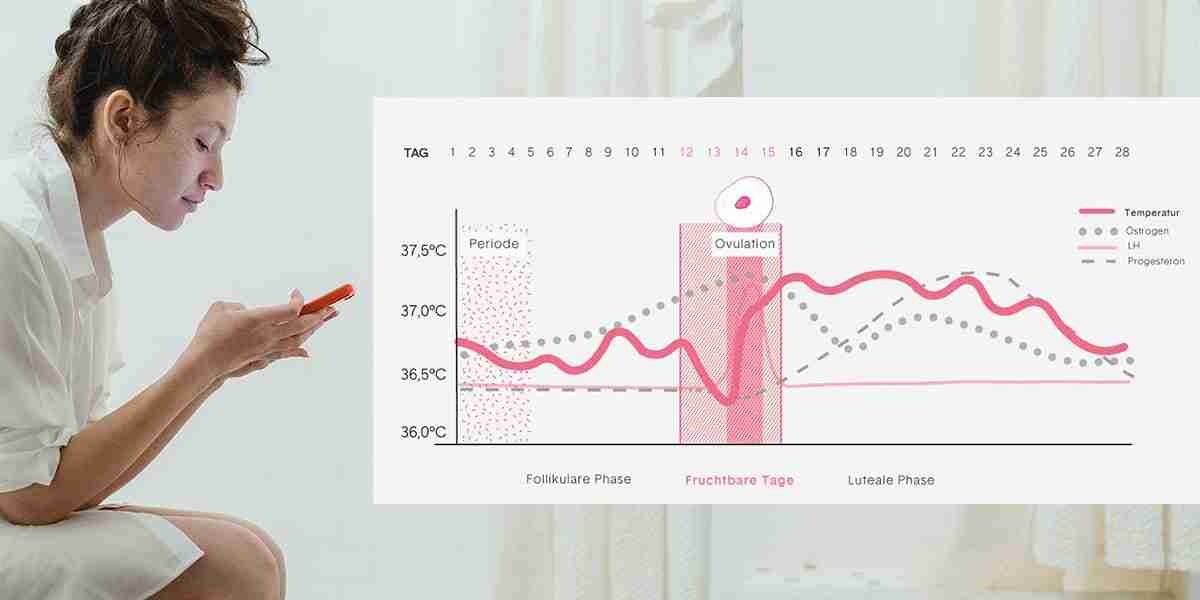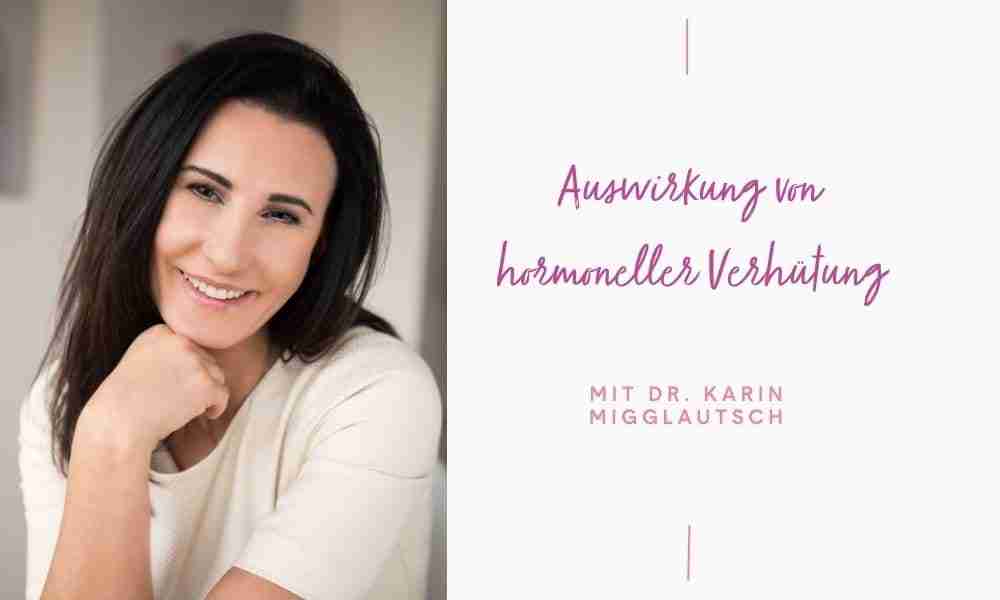
Pregnancy after 40: what you need to know
Late pregnancies are now commonplace. There are also various reasons why women want to wait a little longer before having children. For example, because she wants to secure her career financially or because she doesn't yet have a suitable partner. However, after the age of 40, it can become somewhat difficult to fulfil the desire to have children. For this reason, in this blog post we look at the realistic chances and risks of pregnancy after 40, so read on if you're interested in the topic!
Unfortunately, the tabloid media often suggest a false image of late pregnancies. When women read that stars like Naomi Campbell or Cameron Diaz are still giving birth to healthy children in their 50s, it gives a completely false impression of female fertility. Often, such "celebrity pregnancies" do not mention that they were only possible through egg donation from younger women or so-called "surrogate mothers". That's why today we want to give you a realistic and honest insight into the chances of pregnancy after 40.
Everything stands and falls with the number of eggs...
First things first: yes, it is possible for a woman to have a child at the age of 40. However, the possibility of this is linked to a few biological factors that we want to take a closer look at, namely the number of eggs and the egg quality.
A woman is born with the full number of eggs, as these are already formed during the embryonic period. This means that the number of eggs she has is limited. At the onset of puberty, there are around 500,000 immature eggs in the ovaries. From the first menstruation onwards, the female body sends between several hundred and 2,000 immature eggs per cycle "into the race" to mature one or two potentially fertilisable eggs. The eggs that do not mature degenerate and are then broken down by the body. So you can see that the number of eggs continuously decreases.
How quickly the number of eggs decreases varies from woman to woman. Some women already have a low egg reserve in their early 30s, while others still have many eggs at 40. If you want to know your egg reserve, this can be determined with a hormone analysis, in particular the determination of the anti-Müllerian hormone (AMH) and an ultrasound scan. The AMH value provides an indication of how good the ovarian reserve still is and how many eggs can be produced in the event of hormone stimulation. This value is also relevant in the case of artificial insemination (IVF), for example, as the higher it is, the higher the chances of success of IVF.
... and the egg quality
However, it is not only the number of eggs, but also their quality that plays an important role when a woman wants to become pregnant. Over time, this decreases and the proportion of eggs with genetic changes, so-called aneuploidies, increases. These changes mean that these eggs often cannot be fertilised in the first place or stop developing at an early stage, meaning that pregnancy cannot occur. If a pregnancy does occur, the probability of miscarriage is significantly higher.
By way of comparison, a 20-year-old woman has an average of around 20% aneuploid egg cells, whereas a 40-year-old woman already has 60 to 80%.
Lifestyle habits can also have an influence on how quickly egg cell quality declines. Smoking is egg cell killer number 1, as the cytotoxin nicotine can significantly reduce the quality of the egg cells.

The chances of a natural pregnancy after 40
Even if you may not want to hear it, we have to tell you anyway: your fertility starts to decline slightly from your early 30s. At 25, a woman has an average chance of getting pregnant of 25% per cycle. In her early 30s, this chance drops to around 20%. In her late 30s, the probability of pregnancy is only around 10% per cycle and from 40, the chance of pregnancy is only 5-8%. From 45, it is then virtually impossible to become pregnant naturally, as the probability of becoming pregnant with your own eggs is only 0.2%. For this reason, many fertility clinics no longer treat women over 45.
Time is gold
If the woman is already older and there is a Get pregnant the time factor is the most important. If the recommendation for a woman in her 20s is that she should only consult a fertility expert if no pregnancy occurs after a year despite having sex on her fertile days, she should seek help from the middle/end of her 30s after just 6 months and have the causes clarified so that no valuable time is lost. The first step is to clarify whether there are any cycle disorders, whether and how often ovulation takes place, whether the fallopian tubes are blocked and also the Sperm quality of the partner is scrutinised more closely, as the partner plays a significant role in conception. Depending on the cause, attempts can be made to stimulate the woman's cycle hormonally and determine the time of ovulation.
This is also where our Smart sensor patch and the femSense app come into play. Together, they predict your fertile window and the patch then reliably confirms ovulation based on the post-ovulatory rise in your basal body temperature. The patch, which you only wear on your fertile days, continuously measures your body temperature, which is why measurement errors are virtually impossible. Find out more about the femSense method and how it can help you fulfil your desire to have children.
The chances of artificial insemination after 40
If, despite all efforts, a natural pregnancy does not materialise, there is always the option of an artificial pregnancy. Fertilisation (IVF), which can significantly increase the likelihood of pregnancy from the age of 40. However, the chance of pregnancy also decreases with increasing age. Nevertheless, the success rate of a pregnancy using artificial insemination is a full 23% at the age of 40, which is high compared to the 5-8% of a natural pregnancy.
We took a look at the probability of pregnancy after IVF at the German IVF register and of course we don't want to withhold these figures from you:
- 35 to 39 years: 31 %
- 40 years: 23 %
- 41 years: 18 %
- 42 years: 14 %
- 45 years: 6 %
As already mentioned at the beginning, the probability of pregnancy after 45 is so low that even most IVF treatments are no longer carried out on women over 45.
What can I do to increase my chances of getting pregnant after 40?
In principle, the same basic conditions apply to all women who want to become pregnant. A healthy diet, little stress, sufficient sleep, exercise in the fresh air, abstaining from alcohol and nicotine - these are all factors that can favour pregnancy. Supplementation with fertility-promoting micronutrients can also have a positive effect. Have a look at our shop over, we have met with Fertilabs have teamed up and are currently offering a product bundle where you can get 3 femSense patches and a VILAVIT, which provides you with all the essential micronutrients to improve your egg quality, for €109 instead of €128.90!
And of course, as already mentioned, it is important to see a fertility expert in good time if you are not able to conceive straight away after the age of 40, so that medical indicators can be determined if necessary and no time is lost if you do want to use IVF. In general, it makes sense for women in their early 30s to have a fertility check-up in case they want to have children at a later stage so that they can realistically assess their own chances.
Health risks of pregnancy after 40
Whether and how risky a pregnancy is from the age of 40 cannot be said in general terms, as experts' opinions differ. Many pregnancies at this age proceed without complications, whereas others can lead to increased problems. The most common documented problems of late pregnancy are
- Diabetes
- High blood pressure
– Preemclampsia:
This form of the disease mainly occurs at the transition from the second to the third trimester. Oedema, increased blood pressure and elevated protein levels can be the first signs of Pre-eclampsia. It is particularly serious because, in the worst case, it can lead to eclampsia. This is a serious pregnancy disorder that manifests itself in seizures. Normally, however, the symptoms can be recognised in good time and appropriate precautions can be taken.
– Chromosomal disorders and Miscarriages:
Unfortunately, as the expectant mother gets older, the probability of having a child with trisomy 21 (Down syndrome) or other chromosomal disorders also increases. This is also one reason why miscarriages occur more frequently in late pregnancies, as embryos can no longer develop due to malformations. For example, 40-year-olds already have a 30% miscarriage rate, while at 42 it is almost 50%. Special prenatal diagnostic tests can help to recognise malformations or chromosomal disorders. Everyone has to decide for themselves whether they want to have these tests, as they also have to consider how they want to deal with a possible diagnosis.
Finally, we would like to leave you with the message that you shouldn't let anyone talk you into having children and that it is still possible to give birth to a healthy child at 40+ if the conditions are right. We hope we were able to give you a few valuable tips and insights in this regard with our article and wish you all the best on your late fertility journey!
Sources:
Pregnant over 40 (02.04.2024)
Wanting children over 40: It's not too late (02.04.2024)
Is it too late to have children at 40 plus? (02.04.2024)






Leave a Reply